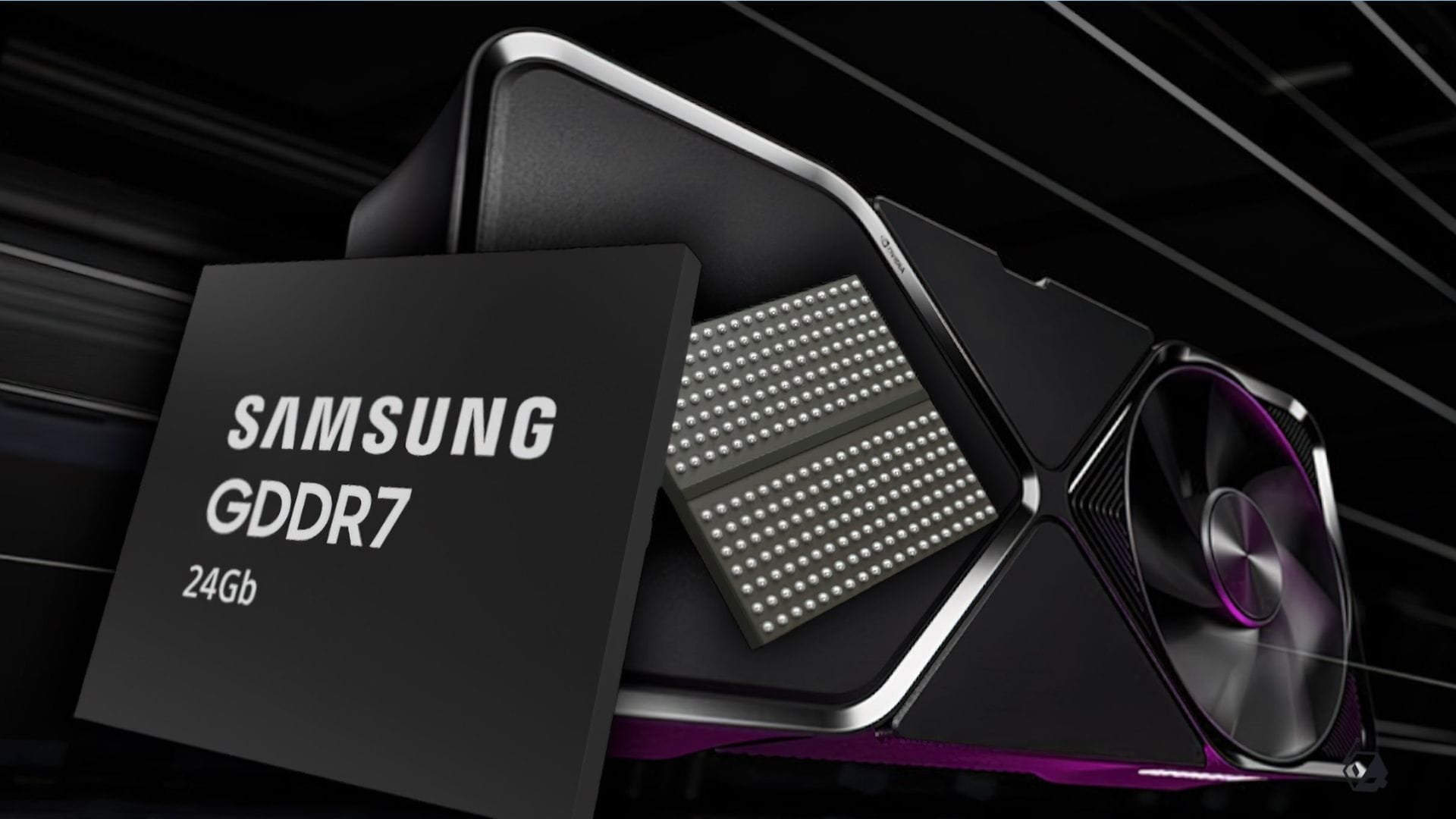Samsung unveils 24GB of GDDR7 DRAM for next-gen AI GPUs
Samsung's new 24GB GDDR7 DRAM offers faster speeds and improved power efficiency, paving the way for next-gen AI GPUs and autonomous vehicles.

Samsung has introduced its new 24-gigabit (24Gb) GDDR7 dynamic random access memory (DRAM), designed to support next-generation graphics processing units (GPUs) powered by artificial intelligence (AI). This marks a significant advancement in the tech world, as the memory chip is an industry first and promises higher performance and efficiency for devices like graphics cards, gaming consoles, and autonomous vehicles.
The announcement showcases Samsung’s ongoing innovation in memory technology. The new 24GB GDDR7 DRAM uses a 5th-generation 10-nanometre (nm) process, building on its predecessor, the 16GB version, launched last year. Thanks to this advanced manufacturing, Samsung has managed to increase the chip’s cell density by 50% despite keeping the physical size of the component unchanged.
Faster speeds with better power efficiency
One of the standout features of the 24GB GDDR7 DRAM is its improved speed. Samsung has incorporated three-level pulse amplitude modulation (PAM3) signalling, allowing the chip to reach up to 40 gigabits per second (Gbps) speeds. In certain conditions, the speed can even be boosted to 42.5 GHz, offering a 25% increase in data transfer speed compared to the earlier GDDR6 model.
But the benefits go beyond just faster speeds. Samsung has also focused on improving power efficiency, a critical factor for many tech industries. The company has incorporated power-saving techniques in mobile processors, such as clock control management and a dual voltage supply design. These innovations contribute to a 30% boost in power efficiency, making the DRAM an excellent option for manufacturers looking to improve performance without sacrificing energy use.
This memory chip’s increased efficiency and speed make it ideal for a range of applications. It’s expected to power gaming systems and GPUs designed for complex tasks like AI processing, advanced graphics rendering, and even autonomous driving systems.
Supporting the future of GPU technology
Samsung is positioning this memory chip as a critical part of the future of GPU technology. The increased demand for high-performance GPUs, particularly those used in AI and autonomous vehicle technology, makes advancements in DRAM crucial to supporting this growing field. By providing faster and more efficient memory, Samsung aims to help GPU manufacturers stay ahead of the curve in an increasingly competitive market.
Validation of the 24Gb GDDR7 DRAM for major GPU customers is set to begin this year, with commercialisation expected early next year. This means that devices equipped with this next-generation memory chip could start appearing soon, which is sure to be a game changer in the tech world.
Samsung continues to lead the charge in the memory market, and this latest development is a clear indication of its commitment to pushing the boundaries of what’s possible in modern technology.















